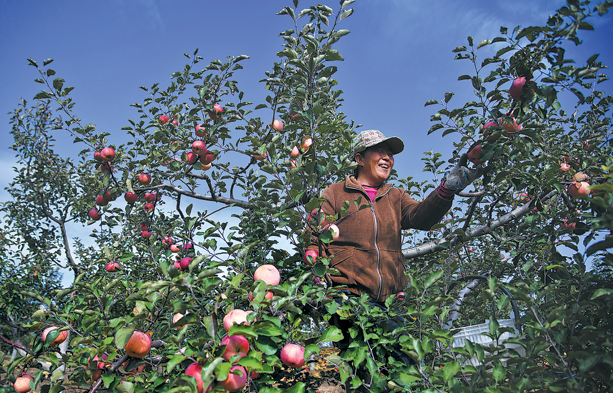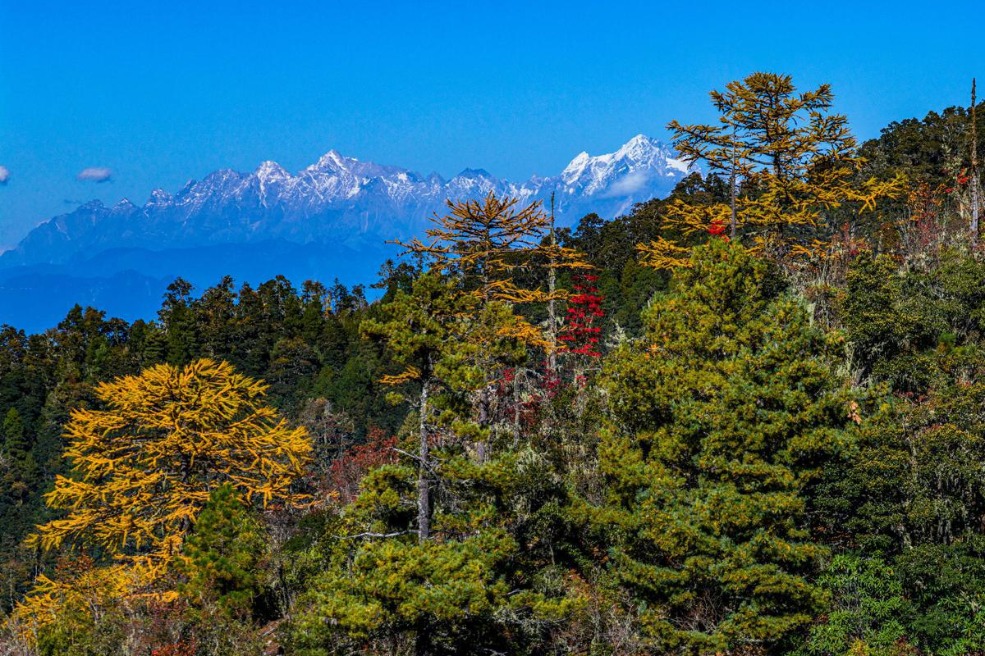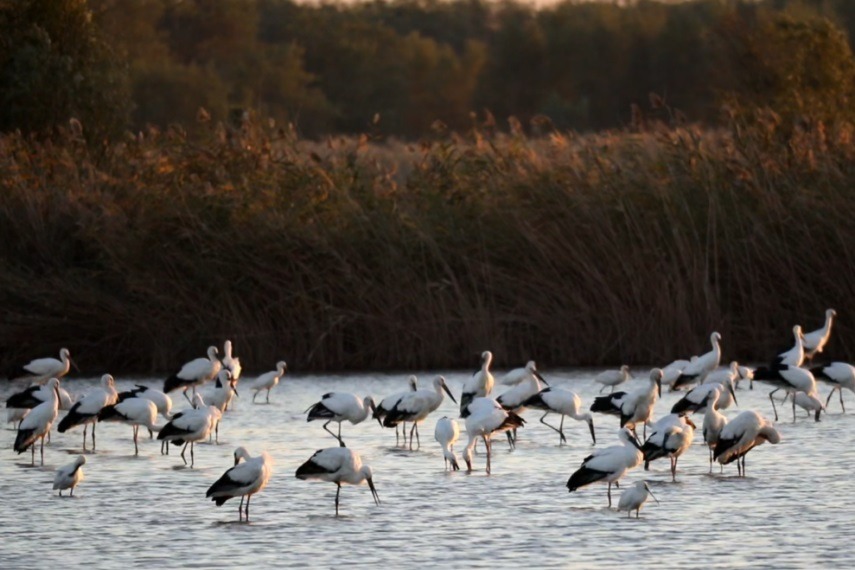Shaanxi's apple belt now extends far into desert


Against the rolling mounds along the southern edge of the Mu Us Desert, one of China's major arid lands, an apple harvest is in full swing. Farmers move through neat rows of trees, their baskets filling with fruit that gleams in the warm autumn light.
It's a scene of abundance that would have been unthinkable just 20 years ago, when this land in China's Shaanxi province was still known as the "barren sand ridges". The transformation is part of a quiet agricultural revolution: the striking northward march of Shaanxi's apple belt, stretching hundreds of kilometers into what was once unyielding desert.
"Shaanxi's traditional apple-growing areas were concentrated in the area north of the Weihe River. In recent years, the planting zone has expanded northward all the way to the Mu Us Desert," said Zhao Guangzhu, director of the provincial fruit industry center. Today, that expansion means one in every four apples grown in China now comes from Shaanxi.
This northward march is not just a story of human perseverance, but also one written by a changing climate. Data from the Yulin meteorological bureau reveals a striking shift: between 2010 and 2024, the city's average annual rainfall rose, temperatures climbed by 1.5 C, and the frost-free season lengthened by 54 days.
"The apple belt's reach into the Mu Us Desert is the product of ecological restoration, climate change and technological progress," said Zhao Zhengyang, a tech expert in the provincial apple industry.
Local government policies have accelerated progress. In recent years, Yulin has seized the momentum of Shaanxi's broader push to expand apple cultivation, making the fruit a cornerstone industry for rural vitalization.
The results are tangible across the region. In Shenmu, a county-level city administered by Yulin, nearly 534 hectares of hillside orchards now thrive. "It used to be impossible to grow grain here," said Wang Mingwei, who manages a 60-hectare orchard. "This year's apple yield will exceed 150,000 kilograms."
The ecological gains are as profound as the economic ones. Decades of afforestation, including the vast Three-North Shelterbelt Forest Program, have stabilized 570,000 hectares of once-drifting sand in Yulin. Today, the city's new orchards, covering over 573,000 hectares, further anchor the soil and help temper the local climate.
Xinhua





































